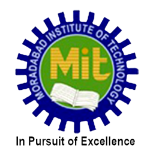
CARRIER GUIDANCE
Future of Education
Future of Education
In today’s world, education is changing faster than ever before. The future of education looks extremely promising as technology advances and new ways of learning develop. Let us take a more in-depth glance at how education is developing and what it may look like in the coming years, highlighting some key points and applications that are transforming the learning experience for both students and teachers.
1. Interactive Learning Platforms
Imagine a classroom where textbooks come out of the pages and you can explore the depths of the ocean or travel through space right from your desk. Students can use interactive learning platforms such as Kahoot and Quizizz to participate in fun quizzes and games that make learning more enjoyable while also enhancing key concepts.
2. Virtual Reality (VR) and Augmented Reality (AR)
Step into a world where history comes real and you can dissect a frog without using a knife. Virtual and augmented reality technologies are transforming education by providing realistic experiences that improve retention and understanding. Applications such as Google Expeditions enable students to explore virtual environments ranging from ancient civilizations to distant galaxies, bringing learning to life in ways never before possible.
3. Personalized Learning
No two students are alike, and adaptive learning platforms such as Khan Academy and Duolingo allow each student to receive personalized instruction based on their individual needs and learning pace. These platforms use techniques to analyze student performance and deliver targeted lessons and practice exercises, ensuring that every student has the resources they need to succeed.
4. Collaborative Tools
Education is no longer limited to the four walls of the classroom. Students can collaborate on projects in real time using tools such as Google Workspace for Education and Microsoft Teams, whether they are across the room or across the globe. These tools help students communicate and collaborate more effectively, promoting teamwork and creativity.
5. AI-Powered Assistants
Implementing the new virtual tutor, powered by artificial intelligence. AI-powered assistants, such as IBM Watson and Google Socratic, can answer students’ questions, explain concepts, and provide personalized feedback, freeing up teachers’ time to focus on more meaningful interactions with their students.
6. Online courses and MOOCs
With online courses and Massive Open Online Courses (MOOCs), you can learn anywhere in the world. Platforms such as Coursera, Udemy, and edX provide thousands of courses from top universities and institutions around the world, allowing students to learn whenever, wherever, and at their own convenience.
7. Gamification
Gamification platforms such as Classcraft and ClassDojo can help students by making learning fun. These platforms encourage students to stay engaged and focused on their learning objectives by awarding points, badges, and rewards for academic accomplishments and positive behavior.
8. STEM Education
STEM (Science, Technology, Engineering, and Mathematics) educational programs can help students prepare for future jobs. STEM education promotes critical thinking, problem-solving, and creativity, preparing students to succeed in a technologically driven world.
Institutions like Moradabad Institute of Technology (MIT), which offer a wide range of courses and programs to prepare students for success in the twenty-first century, are at the forefront of innovation as we embrace the future of education. MIT provides students with the knowledge and abilities they need to succeed in their chosen fields through specialized B.Tech programs in Civil Engineering, Computer Science & Engineering, Electrical Engineering, Electronics & Communication Engineering, and Mechanical Engineering and many more.
Additionally, MIT also offers MBA specializations in Marketing, Finance, Human Resource Management, International Business, and Information Technology & Operations Management.
Furthermore, to help students prepare for careers in high-demand industries, MIT offers Vocational Courses (B.Voc) in Automotive Manufacturing Technology, Banking, Financial Services & Insurance, and Graphics and Multimedia.
Finally, the future of education looks promising, thanks to technological advancements and innovative approaches to teaching and learning. We can help students reach their full potential and shape a better tomorrow by using the power of interactive platforms, virtual reality, personalized learning, collaborative tools, AI assistants, online courses, gamification, and STEM education.
Future Trends in Engineering
Future Trends in Engineering
The world of Engineering is about to undergo some exciting changes that will pave the way for more innovation and advancement in the years to come. Come along as we investigate thefuture trends that will influence the field of engineering and examine the importance of various trending courses in this domain.
Mechanical Engineering: Powering Progress
Mechanical engineering, which is often regarded as the backbone of engineering, is evolving to meet the demands of the future. Sustainable practices will be prioritized in the future, with advancements in renewable energy, robotics, and automation. Mechanical Engineering is poised to power progress with efficiency and environmental consciousness, from designing eco-friendly machinery to pioneering breakthroughs in 3D printing.
Electrical Engineering: Illuminating the Path Ahead
Leading the charge in revolutionary advancements in energy harvesting and utilization is the field of Electrical Engineering. Future developments include electric vehicle production, integration of renewable energy sources, and smart grids. Electrical engineering is essential to creating innovative technologies that light the way to a sustainable and energy-efficient future as our world becomes more interconnected.
Electronics and Communication Engineering: Connecting Beyond Boundaries
The connected world is about to undergo a revolution thanks to electronics and communication engineering. The future will be shaped by developments in 5G technology, the Internet of Things (IoT), and artificial intelligence. In order to create a world where communication dissolves barriers and facilitates the free flow of ideas and information, from wearable technology to smart cities, this speciality is essential.
Civil Engineering: Building Sustainable Tomorrows
The field of civil engineering is experiencing a paradigm shift in favor of resilience and sustainability. Eco-friendly infrastructure, cutting-edge building materials, and a focus on disaster resistant designs are some of the upcoming trends. As environmental stewards, civil engineers will be essential to creating a sustainable future by making sure that our cities are resilient, effective, and in balance with the natural world.
Computer Science Engineering: Shaping the Digital Frontier
The engine driving the digital revolution is computer science and engineering. Cybersecurity, machine learning, and artificial intelligence will all grow exponentially in the future. Computer science engineers play a crucial role in defining the digital frontier, from creating intelligent systems to safeguarding digital environments. When we navigate an increasingly digitalized world, the need for qualified professionals in this field is expected to soar.
The Importance of Specializations: Tailoring Expertise for Tomorrow
Every engineering specialization contributes a different set of skills to the diverse fabric of technological advancements. Infrastructures are built by Civil Engineering, Mechanical Engineering drives industries, Electrical Engineering illuminates our lives, Electronics and Communication Engineering links us, and Computer Science Engineering navigates the digital world.
These branches are more than simply academic fields in this age of specialization; they are avenues for tackling the difficult problems of the future. It is imperative that we continue to hone our expertise in these specializations going forward. They serve as the cornerstones of our technological future.
Embracing Change: Engineers as Innovators
The future of engineering is about driving change, not just adapting to it. Engineers are the architects of innovation, the visionaries who transform ideas into reality. Tomorrow’s challenges will necessitate not only technical expertise, but also creative thinking, adaptability, and a commitment to sustainable practices.
Best College for Engineering Education
Moradabad Institute of Technology, where learning and creativity collide. Become a part of a dynamic learning community led by knowledgeable faculty and furnished with state-of-the-art resources. Discover a variety of courses that will help you shape an exceptional future, from management to engineering. At Moradabad Institute of Technology, where every student is given the tools they need to succeed, your path to success starts right now. Grab the chance and take control of your future!
To summarize, the future of engineering is a blank canvas waiting to be painted with creativity, sustainability, and progress. Aspiring engineers are at the forefront of creating a smarter, more connected, and environmentally conscious world. Whether you major in Mechanical, Electrical, Electronics and Communication, Civil, or Computer Science Engineering, the road ahead is full of exciting opportunities and limitless potential. Accept the future as yours to shape.
The Role of Technology In Education
The Role of Technology In Education
Technology today has a significant impact on how we learn and acquire knowledge. The use of technology in education has transformed traditional classrooms into dynamic and interactive learning environments. From virtual classrooms to the incorporation of AI, let’s look at the important role technology plays in improving education. Also, in this article, we’ll discuss about one of the top institutes in Moradabad that offers various professional courses after 12th using the latest technological advancements in the field of education, that you can pursue to work and make a difference in the ever-evolving world of education.
According to Sarvgyan, technology has transformed how teachers deliver lessons. Interactive whiteboards, educational apps, and multimedia presentations make classes more interesting and captivating. Visual aids and simulations help students understand complex concepts by transforming theoretical learning into a hands-on experience. This not only makes lessons more enjoyable, but it also helps students understand and retain information more effectively.
First, technology has made learning more accessible. The internet allows students to access a vast amount of information from the comfort of their own homes. Online resources, educational websites, and digital libraries offer a wealth of information with the click of a button. This accessibility allows students to explore a variety of topics, conduct research, and broaden their understanding beyond what traditional textbooks provide.
Furthermore, technology fosters personalized learning. Online educational platforms can accommodate different learning styles and paces. Students can progress at their own pace, focusing on areas that require more practice and moving on when they are ready. This personalized approach addresses students’ diverse needs, ensuring that each learner receives the necessary support and challenges.
Collaboration is another area where technology excels in education. Virtual classrooms, video conferencing, and collaborative platforms allow students to collaborate seamlessly, regardless of physical distance. Students connect with peers from all over the world, which promotes teamwork, communication skills, and a global perspective.
Moradabad Institute of Technology (MIT)
Learn about the future of education at Moradabad Institute of Technology (MIT), where innovation meets excellence. Our cutting-edge approach combines various technologies to provide unrivalled learning opportunities in B.Tech, MBA, and B.Voc. Embrace the digital age with our B.Tech programs, which combine hands-on training and advanced labs to bring theory to life.
Our MBA courses will help you advance your career by combining strategic insights with practical applications. Our industry-aligned B.Voc. programs offer opportunities to gain practical experience in a variety of fields. At MIT, we do more than just teach; we immerse you in a tech-driven, dynamic environment, preparing you to excel in the ever-changing professional landscape. Join MIT and contribute to the transformation of education.
To summarize, technology has become an integral part of education, changing the way we learn and teach. It has made learning easier, lessons more engaging, and assessments more timely. As we recognize the benefits of technology in education, it is critical that we use it responsibly and inclusively, bridging the gap between traditional and modern methods to create a well-rounded and effective learning environment for all.
Values:
We, at Career Guidance Center, are motivated by certain core values:
- Integrity: We believe in fostering trust with our partners by ensuring transparency.
- Leadership: We believe in paving our way ahead of our times, and also inspiring our students, faculty and partners alike.
- Equity: We believe in equality for all and no discrimination on the basis of caste, gender, race and social and economic backgrounds.
- Diversity: We believe in fostering diversity in our appointments and endeavours in synergy with the core value our institute was established on.

